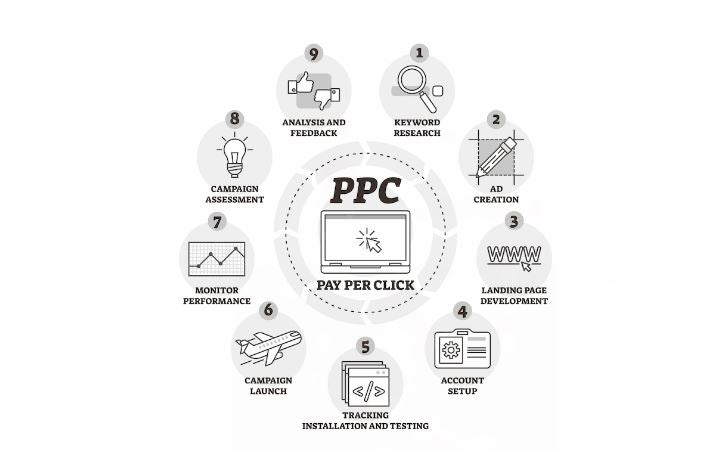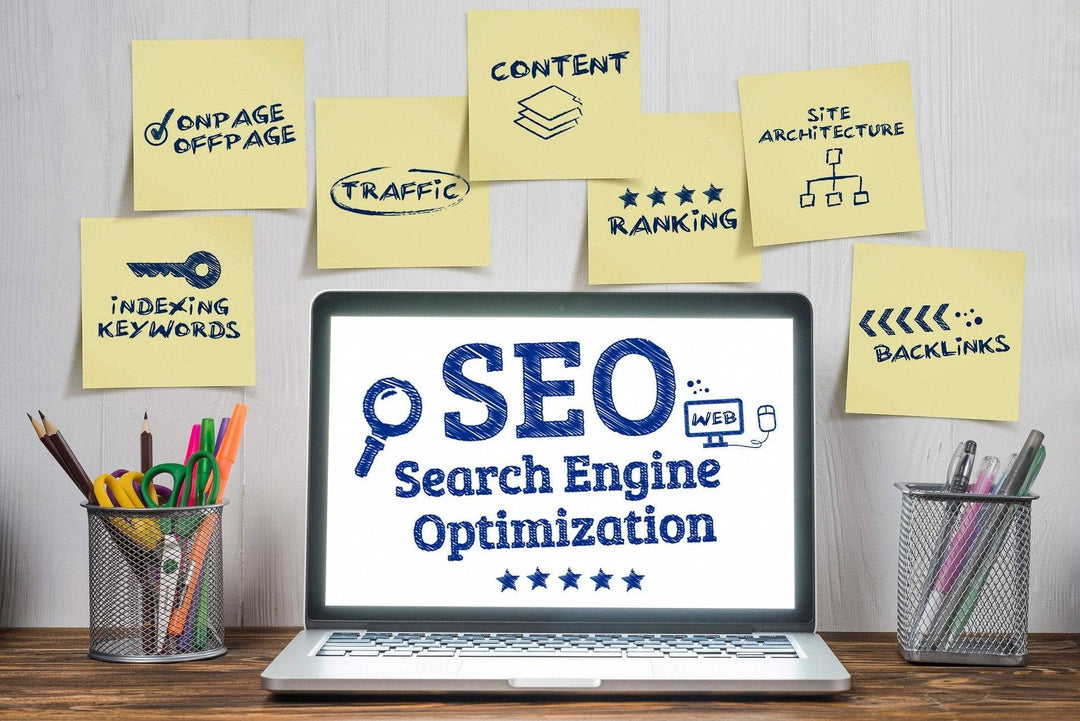There are more than 400 million active users of online marketplaces in the United States, and eCommerce is booming. Consumers are more comfortable with the Internet than ever. They’re spending their money online, too. E-commerce sales reached almost $300 billion in the last year alone.
In response to this opportunity, numerous businesses have sprung up to meet the demand for various products and services on these sites. However, competition is fierce and success is not guaranteed for everyone. Fortunately, there are ways you can give yourself an edge.
Paid search can be a great way to attract more customers to your store, but it's not as simple as setting up a campaign and sitting back and waiting for the sales to roll in. There's a lot more to it than that. The benefits of Paid Search Marketing extend beyond -- as we will see -- being one of the most cost-effective channels available to e-retailers today; it also enables you to target your customers at a granular level while also measuring ROI with precision.
In order to get the most out of your paid search campaign, you need to make sure you're using the best strategies & practices. Let's get deep into that.

Defining Paid Search
When most people think of paid search, they think of Google AdWords. And that's a great place to start. But paid search also includes other advertising platforms, like Facebook and LinkedIn.
The basic idea is that you're paying to have your website show up as a top result for a specific keyword or phrase. So when someone types that keyword into a search engine, your website pops up as one of the top options.
There are a lot of different factors to consider when setting up a paid search campaign, but the goal is always the same: to get more people to visit your website and buy your products or services.
Read more here: TOP STEPS TO PREPARE YOUR BRAND FOR GOOGLE ANALYTICS 4
The Benefits of Paid Search for Ecommerce
When it comes to increasing eCommerce sales, paid search is one of the most effective channels at your disposal. And there are a few reasons for that.
For starters, paid search results appear at the top of the search engine results pages (SERPs), which means that your ads are going to be seen by a lot of people. Plus, because people are already in the mindset of buying when they're conducting a search, they're more likely to click on your ad and make a purchase.
And finally, paid search allows you to target your audience based on their interests and demographics, which means that you're not wasting your time with people who aren't interested in what you're selling.

Brings Traffic
Paid search directs visitors to specific websites that a business is marketing. Driving digital traffic to your website is a crucial aspect of your business because digital marketing and online buying have largely taken over how most businesses conduct their operations. More visitors to your website equals more prospective clients. Because your site is easily accessible and has been recommended by the search engine, potential customers may be more inclined to click on it when your ad appears at the top of their search results.
Monitoring Capabilities
With paid search, you can monitor the performance of your campaigns and the users who click on the adverts. When creating new campaigns or selecting the keywords to use in your advertising, these skills might be useful. Around this information, you can improve every part of your website. A characteristic exclusive to digital marketing is the ability to monitor the results of your activities.
More Exposure
Paid search advertising can bring you to the top of search results right away, but optimizing your website might ultimately push your brand and product there. Paid advertising are ideal for swiftly reaching high-intent search prospects, whether you're a small startup company attempting to establish your online presence or a huge enterprise with an established reputation.
Grow Beyond Competition
It might be challenging to improve your content sufficiently to rank well if there is a lot of competition in your business for keywords and rankings in search engines. With the use of paid searches, you can maintain your brand's position at the top of the search results pages without having to outbid other businesses for the same keywords. By expanding your sponsored search presence, you could have a more significant presence in cutthroat marketplaces. By reaching a wider audience and raising brand recognition, you may improve your chances of turning prospective clients into paying customers.
Recommended Reading: GOOGLE'S PERFORMANCE MAX CAMPAIGNS: CREATE AUTOMATED GOAL-BASED CAMPAIGN
How to Get Started With Paid Search

So you want to start increasing your e-commerce sales through paid search? Here's how to get started:
1. Understand your goals and the competition
Before you start running ads, you need to understand your goals and the competitors. If you're trying to get more traffic to a blog post, then it's important to know how many people have already read it. If you want more sales at your store, then you'll need to know what types of products are selling best and how many clicks they receive.
2. Set up a Google AdWords account
If you don't already have an account with Google, set one up today! It's free, and easy, and once you have one set up, it's time for the fun stuff like creating ads and tracking performance. Google has a great help center with tons of information on setting up your account, including details on creating ad groups and campaigns.
3. Pick a keyword or phrase (or both)
Once you have determined what type of product or service you wish to sell, it is time to pick some keywords or phrases that will help you compete against other brands in the market. These are often referred to as your “keywords” or “keyphrases” and should be short and easy for searchers to remember and type into their search bar when they want more information about your brand or product. When it comes to paid search advertising, your competition is defined by your competitors' ads in AdWords and their performance on the SERPs (Search Engine Results Pages). You can use SEMrush or another tool to analyze your competitor's ads and see how much they're spending on AdWords and what their results look like in the SERPs.
4. Set up a landing page for each keyword
After picking your keywords, it is time to create landing pages for each one so that when people click through from Google search results pages, they end up on one of these pages (also known as “landing pages”). These pages allow you to provide additional information about your product or service while encouraging visitors.
5. Optimize your ads for performance (CTR and conversion rate)
Once you know what makes each competitor unique, it’s time to optimize your ads for performance (CTR). To do this, consider the following factors:
How often does the ad appear on each competitor’s website?
How long does it take before a user sees the ad?
What is the cost per click (CPC) of this ad?
Relevant Reading: ALL ABOUT PAID ADVERTISING: TOP CHANNELS, BENEFITS & IMPLEMENTATION TIPS
What Are the Best Practices for Paid Search?
When it comes to paid search, there are a few best practices you should keep in mind.
First, always use keyword targeting. This will help you make sure your ads are reaching the right audience. And speaking of audiences, be sure to target as many of them as possible. The more specific you can be, the better.
Another best practice is to use negative keywords. This will help you weed out any irrelevant traffic and make sure your ads are only being seen by people who are actually interested in what you're selling.
And finally, always test and optimize your campaigns. Try different keywords, ad copy and landing pages to see what works best for you. It's all about finding what works best for your business and doubling down on that.
How to Measure the Success of Your Paid Search Campaigns
Measuring the success of your paid search campaigns is essential for understanding whether your investment is paying off. You need to be able to track things like clicks, impressions, and conversions in order to gage how well your campaigns are performing.
But it's not always easy to track all of that data. That's where Google Analytics comes in. It's a free tool that helps you track your website traffic and measure your marketing efforts. And it's a tool that you should definitely be using if you're running paid search campaigns.
In order to measure the success of your paid search campaigns, you need to set up conversion tracking in Google Analytics. This will help you track how many people are clicking through from your ads to your website, and it will also help you track how many of those people are converting into customers. Once you have this data, you can use it to make adjustments to your campaigns and improve their performance.
Troubleshooting Tips for Common Paid Search Problems
So, you're running a paid search campaign and you're not getting the results you want. What do you do?
First, take a step back and analyze what's going on. Are your ads being shown to the right people? Are they being shown at the right time? Are they being shown in the right place?
If the answer is no, then it's time to make some changes. Here are a few tips for troubleshooting common paid search problems:
- Make sure your keywords are relevant to your products or services.
- Make sure your ads are relevant to your keywords.
- Make sure your landing page is relevant to your ad.
- Make sure your bid amount is competitive.
- Make sure you're using the correct match type for your keywords.

Kickstart Your Paid Search Campaigns
So, you've got an eCommerce store. You've put in the hard work of getting it up and running, and you're now ready to start making sales. But how?
One great way to start boosting your sales is through paid search. Paid search is a great way to target potential customers who are already interested in what you have to offer. It can also help you to reach a wider audience and can generate a lot of traffic to your store.
If you're looking to increase your e-commerce sales, paid search is a great option. It can help you to reach new customers and boost your traffic levels, resulting in more sales for your store.
Planning to get started with Paid Search? Get in touch with our experts in eComIntegrate.
[nerdy-form:11564]






Leave a comment